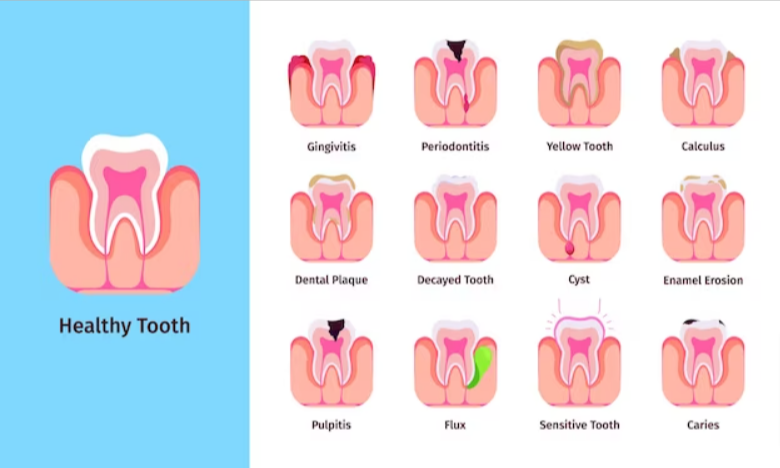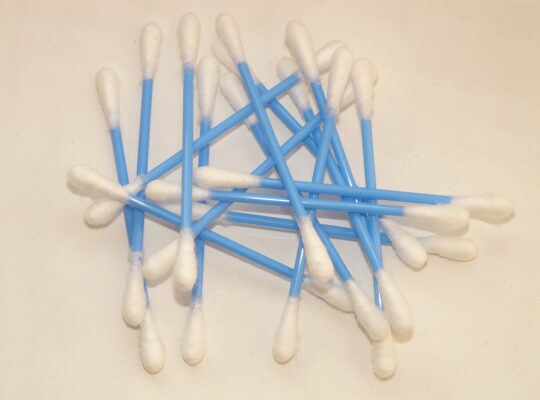Maintaining good oral health is crucial for overall well-being. Neglecting dental care can lead to various issues, such as tooth decay, gum disease, and cavities. While it’s easy to overlook minor dental problems, it’s important to be aware of the warning signs that indicate your teeth may not be as healthy as you think. By recognizing these signs early on, you can save yourself time, money, and potential complications in the future. In this comprehensive guide, we will explore the signs of unhealthy teeth and provide valuable insights on how to maintain optimal oral health.
Bleeding Gums: A Red Flag
One of the most common signs of unhealthy teeth is bleeding gums. If you notice blood on your toothbrush or in the sink after brushing or flossing, it could be an indicator of gum disease, also known as periodontal disease. Gum disease is an infection that affects the tissues holding your teeth in place. When left untreated, it can lead to bone loss and, ultimately, tooth loss. In addition to bleeding gums, you may also experience redness, swelling, tenderness, and discharge between your teeth and gums. If you observe these symptoms, it’s crucial to seek professional dental care promptly.
Want a fast and easy teeth-whitening solution to get a brighter, healthier smile in no time, read the bonus tip at the bottom of the page.
Receding Gums: Don’t Ignore the Signs
While some gum recession is a normal part of the aging process, excessive recession can be a sign of gum disease. Receding gums expose the delicate roots of your teeth, increasing the risk of decay, infection, pain, and even tooth loss. Early detection is key to preventing further damage. If you notice your gums pulling away from your teeth or widening gaps between your teeth, consult with your dentist. Timely intervention and appropriate treatment can help reverse or halt the progression of gum recession.
Dry Mouth: A Cause for Concern
A healthy mouth is well lubricated by saliva, which plays a crucial role in washing away food particles and neutralizing acids produced by plaque. If you frequently experience dry mouth, it may be a sign of an underlying issue. Dry mouth can be caused by various factors, including certain illnesses or medications. Your dentist can identify the cause of your dry mouth and recommend appropriate measures to restore moisture and protect your teeth.
Loose or Shifting Teeth: A Call for Action
Adult teeth are meant to last a lifetime. Therefore, if you notice any slight movement or widening gaps between your teeth, it’s essential to take it seriously. Loose or shifting teeth can be a sign of infection or bone loss. Changes in the way your teeth fit together when biting or alterations in the fit of your partial dentures should also be addressed by a dental professional. Early intervention can help prevent further damage and preserve your natural teeth for as long as possible.
Bumps and Sores: When to Seek Treatment
While canker sores are generally harmless and resolve on their own within a couple of weeks, other oral lesions may require treatment. For instance, a fungal infection called thrush, or candidiasis, can manifest as white sores on the tongue, inner cheeks, tonsils, or roof of the mouth. Diabetic individuals are more prone to thrush, as it thrives on high sugar levels in saliva. If you have persistent sores, it’s important to seek professional medical attention. Your dentist can diagnose and treat conditions like thrush, ensuring your oral health is restored.
Toothache: Listen to Your Teeth
A toothache is one of the most obvious signs that something is wrong with your teeth. Pain and sensitivity can have various causes, such as cavities, abscesses, broken teeth, damaged fillings, or teeth grinding. Ignoring toothaches can lead to further complications, so it’s essential to consult a dentist to determine the underlying issue and receive appropriate treatment. Addressing the problem early on can help alleviate pain and prevent future oral health problems.
Top 5 Ways to Maintain Oral Health
Preventing dental issues starts with maintaining a proper oral hygiene routine and seeking regular dental checkups. Here are the top five ways to keep your mouth healthy:
- Brush at least twice a day: Brushing your teeth for approximately two minutes each time is essential for removing plaque and food particles. Use a toothbrush with soft bristles to avoid damaging your gums.
- Floss daily: Flossing helps clean the spaces between your teeth and below the gum line, where a toothbrush cannot reach. It removes plaque and debris, reducing the risk of cavities and gum disease.
- Use fluoride rinse: Ask your dentist if using a fluoride rinse is suitable for you. Fluoride aids in preventing tooth decay by strengthening tooth enamel.
- Choose a tooth-friendly diet: Opt for a diet rich in minerals and vitamins that support oral health. Avoid excessive consumption of sugary and acidic foods and beverages, as they can contribute to tooth decay.
- Regular dental check-ups: Schedule regular visits to your dentist, even if you’re not experiencing any symptoms. Regular check-ups allow for early detection of dental problems and professional cleaning to maintain optimal oral health.
By following these practices and being vigilant about your oral health, you can minimize the risk of developing dental issues and maintain a healthy smile.
Bonus Tip
Ready to achieve a brighter, healthier smile the natural way? Try our all-natural teeth whitening product today and experience the benefits of a chemical-free, eco-friendly solution. With no harsh chemicals or additives, our product can help you achieve a brighter, whiter smile while promoting overall dental health. Learn more here!
Conclusion
Maintaining healthy teeth is crucial for your overall well-being. By being aware of the signs of unhealthy teeth, such as bleeding gums, receding gums, dry mouth, loose or shifting teeth, bumps and sores, and toothaches, you can address potential problems before they escalate. Additionally, practicing good oral hygiene habits, including proper brushing and flossing techniques, using fluoride rinse, and scheduling regular dental check-ups, will help ensure optimal oral health. Remember, prevention is key, and early intervention can save you time, money, and discomfort in the long run. Take care of your teeth, and they will take care of you.
Auto Amazon Links: No products found.






